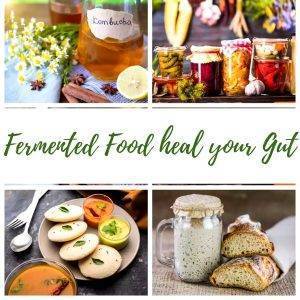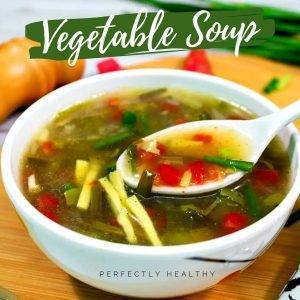“Fuel Your Recovery with Nutritious Foods: Eat Right to Fight Covid-19!”
Overview
Eating the right foods can help you stay healthy and fight off the virus. Eating a balanced diet that includes plenty of fruits, vegetables, whole grains, and lean proteins can help boost your immune system and give you the energy you need to fight off the virus.
What is Covid
Covid-19 is a contagious respiratory illness caused by a novel coronavirus, known as SARS-CoV-2. It is a new strain of coronavirus that has not been previously identified in humans. The virus is spread through contact with an infected person, through respiratory droplets produced when an infected person coughs, sneezes, or talks. It can also be spread by touching a surface or object that has the virus on it and then touching your mouth, nose, or eyes.
The virus is spread through contact with an infected person, through respiratory droplets produced when an infected person coughs, sneezes, or talks. It can also be spread by touching a surface or object that has the virus on it and then touching your mouth, nose, or eyes.
Warning Signs of Covid
Covid-19 is a highly contagious virus that has been spreading rapidly around the world. Be aware of the warning signs of Covid-19 to protect yourself and those around you.
The most common symptoms of Covid-19 are
- Fever
- Dry cough
- Shortness of breath
- Fatigue
- Body aches
- Chest pain or pressure
- Sore throat
- Headache
- Loss of taste or smell
- Bluish lips or face
- Congestion
- Nausea
- Diarrhea
If you experience any of these symptoms, seek medical attention immediately. Practice social distancing, wear a face mask, and wash your hands frequently to protect yourself and those around you.
Fruits and Vegetables to Eat During Covid
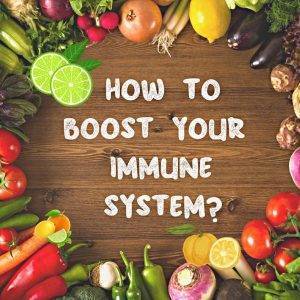 Eating a balanced diet of fruits and vegetables is essential for maintaining good health, especially during the Covid-19 pandemic. Fruits and vegetables are packed with essential vitamins, minerals, and antioxidants that can help boost your immune system and protect you from infection.
Eating a balanced diet of fruits and vegetables is essential for maintaining good health, especially during the Covid-19 pandemic. Fruits and vegetables are packed with essential vitamins, minerals, and antioxidants that can help boost your immune system and protect you from infection.
Here are some of the best fruits and vegetables to eat during Covid-19:
1. Citrus fruits: Citrus fruits such as oranges, lemons, and grapefruits are rich in vitamin C, which is essential for a healthy immune system. Vitamin C helps to protect cells from damage and can help reduce inflammation.
2. Leafy greens: Leafy greens such as spinach, kale, and Swiss chard are packed with vitamins, minerals, and antioxidants. They are also high in fiber, which can help keep your digestive system healthy.
3. Berries: Berries such as strawberries, blueberries, and raspberries are rich in antioxidants and can help reduce inflammation. They are also a great source of vitamin C.
4. Cruciferous vegetables: Cruciferous vegetables such as broccoli, cauliflower, and Brussels sprouts are packed with vitamins, minerals, and antioxidants. They are also high in fiber, which can help keep your digestive system healthy.
5. Garlic: Garlic is a powerful antioxidant and anti-inflammatory. It can help boost your immune system and protect you from infection.
6. Mushrooms: Mushrooms are a great source of vitamins, minerals, and antioxidants. They are also high in fiber, which can help keep your digestive system healthy.
7. Tomatoes: Tomatoes are rich in vitamins, minerals, and antioxidants. They are also high in lycopene, which can help reduce inflammation and protect cells from damage.
Incorporate Healthy Fats and Oils Into Your Diet During Covid
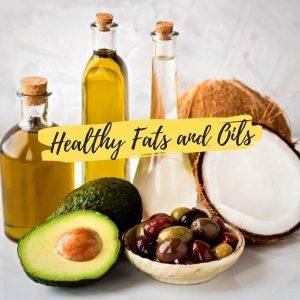 Here are some tips for incorporating healthy fats and oils into your diet during the pandemic:
Here are some tips for incorporating healthy fats and oils into your diet during the pandemic:
1. Choose healthy fats and oils. Healthy fats and oils include olive oil, avocado oil, coconut oil, and nut oils. These fats and oils are rich in monounsaturated and polyunsaturated fatty acids, which are beneficial for your health. Avoid trans fats and processed oils, such as vegetable oil, corn oil, and canola oil.
2. Use healthy fats and oils in cooking. Use healthy fats and oils when cooking to add flavor and nutrition to your meals. For example, use olive oil when sautéing vegetables or baking fish.
Coconut oil is great for stir-frying and baking. Avocado oil is a great choice for salad dressings and marinades.
3. Add healthy fats and oils to your meals. Add a tablespoon of olive oil or avocado oil to your salads or soups for added flavor and nutrition. You can also add a tablespoon of nut butter to your smoothies or oatmeal for a healthy dose of healthy fats and protein.
4. Eat more fatty fish. Fatty fish, such as salmon, mackerel, and sardines, are rich in omega-3 fatty acids, which are beneficial for your heart health. Aim to eat fatty fish at least twice a week.
5. Include nuts and seeds in your diet. Nuts and seeds are great sources of healthy fats and protein. Try adding a handful of nuts or seeds to your salads, oatmeal, or yogurt for a nutritious snack.
Eat Fermented Foods During the Covid 
The Covid-19 pandemic has caused a great deal of disruption to our lives, and it is important to take steps to ensure that our bodies are as healthy as possible. Eating fermented foods is one way to do this, as they are packed with beneficial nutrients and can help to boost the immune system.
Fermented foods are created through a process of lacto-fermentation, which involves the use of beneficial bacteria to break down the sugars and starches in food.
This process creates lactic acid, which acts as a preservative and helps to keep the food fresh for longer. It also increases the nutrient content of the food, making it more easily absorbed by the body.
Fermented foods are rich in probiotics, which are beneficial bacteria that help to keep the digestive system healthy.
They can help to reduce inflammation, improve digestion, and boost the immune system. They also contain beneficial enzymes, which can help to break down food and make it easier to digest.
Fermented foods are also a great source of vitamins and minerals, including vitamin B12, vitamin K2, and folate. These vitamins and minerals are essential for a healthy immune system and can help to reduce the risk of infection.
Eating fermented foods can also help to reduce stress levels, as they contain compounds that can help to reduce cortisol levels. This can help to reduce the risk of developing illnesses, as stress can weaken the immune system.
Fermented foods are a great source of antioxidants, which can help to protect the body from free radical damage. This can help to reduce the risk of developing chronic illnesses, such as heart disease and cancer.
In conclusion, eating fermented foods is beneficial for overall health. So include fermented foods in your diet always.
Nutrient-Dense Soups and Stews to Boost Your Immune System
Soups and stews are a great way to boost your immune system and get a variety of nutrients into your diet. 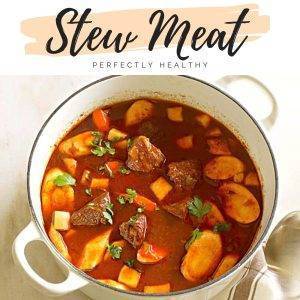 Here are some tips for making nutrient-dense soups and stews that will help keep your immune system strong.
Here are some tips for making nutrient-dense soups and stews that will help keep your immune system strong.
1. Start with a nutrient-rich broth. The broth is the base of any soup or stew, so it’s important to choose one that is full of nutrients. Bone broth is a great option, as it is full of minerals and amino acids that can help support your immune system. You can also use vegetable broth or stock, which is full of vitamins and minerals.
2. Add plenty of vegetables. Vegetables are packed with vitamins, minerals, and antioxidants that can help boost your immune system. Try to include a variety of colors and types of vegetables in your soup or stew.
3. Include legumes. Legumes such as beans, lentils, and peas are a great source of protein and fiber, both of which can help support your immune system.
4. Add herbs and spices. Herbs and spices are full of antioxidants and other compounds that can help boost your immune system. Try adding garlic, ginger, turmeric, oregano, and other herbs and spices to your soup or stew.
5. Include healthy fats. Healthy fats such as olive oil, coconut oil, and avocado oil can help support your immune system. Try adding a tablespoon or two of these oils to your soup or stew.
By following these tips, you can make nutrient-dense soups and stews that will help keep your immune system strong. Enjoy!
A Healthy Recipe for Covid Patient
Ingredients:
– 2 tablespoons olive oil
– 1 onion, diced
– 2 cloves garlic, minced
– 2 carrots, diced
– 2 celery stalks, diced
– 2 potatoes, diced
– 1 teaspoon dried oregano
– 1 teaspoon dried thyme
– 1 bay leaf
– 6 cups vegetable broth
– 1 (14.5 ounce) can dice tomatoes
– 1 (15-ounce) can of kidney beans, drained and rinsed
– 1 cup frozen corn
– Salt and pepper to taste
Instructions:
1. Heat the olive oil in a large pot over medium heat. Add the onion and garlic and cook until softened, about 5 minutes.
2. Add the carrots, celery, potatoes, oregano, thyme, and bay leaf. Cook for another 5 minutes, stirring occasionally.
3. Pour in the vegetable broth and bring it to a boil. Reduce the heat to low and simmer for 15 minutes.
4. Add the diced tomatoes, kidney beans, and corn. Simmer for another 10 minutes.
5. Season with salt and pepper to taste. Serve hot.


